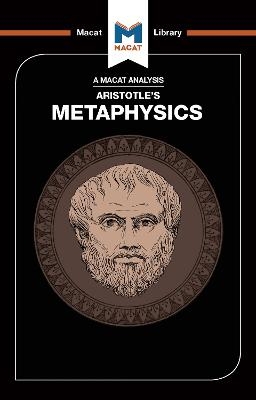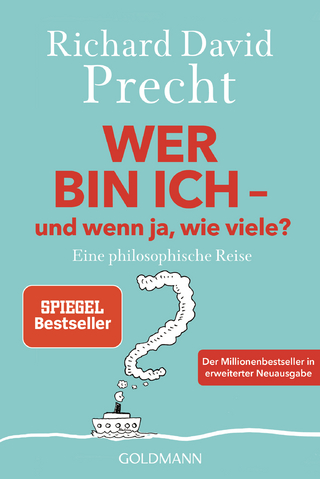
An Analysis of Aristotle's Metaphysics
Seiten
2017
Macat International Limited (Verlag)
978-1-912302-95-6 (ISBN)
Macat International Limited (Verlag)
978-1-912302-95-6 (ISBN)
How many books can claim to be so influential as to inspire the development of a whole school of thought? Metaphysics did exactly that, laying the foundations for a new branch of philosophy concerned with the cause and nature of being.
Aristotle’s Metaphysics is a collection of essays on a wide range of topics, almost certainly never put together by Aristotle himself. This helps to explain why the material covers such a very wide range of material, from meaning to mathematics, from logical sequences to religion. It includes very useful treatments of the nature of axioms (or primary truths) such as the law of non-contradiction and the laws of logic.
In looking at these, Aristotle provides sustained guides to clear thinking as would be evidenced in analysis and evaluation of arguments and the production of good reasoning. He also provides some valuable discussion of interpretation by looking at homonyms (as in ‘this knife is sharp’ and ‘this note is sharp’) and what he calls ‘paronyms,’ which lie between homonyms and synonyms: an example is the word ‘healthy’. Metaphysics is also useful to study for its frequent examples of hypothetical reasoning, including their use in mathematics (‘if x, then y…’) and science (‘if a moves b, then b moves c...’, so what moves a?). In addition, we find Aristotle analysing Plato’s arguments and subjecting them to sustained (critical) evaluation. While Metaphysics shows Aristotle in many well-developed critical thinking modes, it is first and foremost a work of exquisite reasoning, creating strong arguments that continue to be debated and deployed today, nearly 2500 years after they were written.
Aristotle’s Metaphysics is a collection of essays on a wide range of topics, almost certainly never put together by Aristotle himself. This helps to explain why the material covers such a very wide range of material, from meaning to mathematics, from logical sequences to religion. It includes very useful treatments of the nature of axioms (or primary truths) such as the law of non-contradiction and the laws of logic.
In looking at these, Aristotle provides sustained guides to clear thinking as would be evidenced in analysis and evaluation of arguments and the production of good reasoning. He also provides some valuable discussion of interpretation by looking at homonyms (as in ‘this knife is sharp’ and ‘this note is sharp’) and what he calls ‘paronyms,’ which lie between homonyms and synonyms: an example is the word ‘healthy’. Metaphysics is also useful to study for its frequent examples of hypothetical reasoning, including their use in mathematics (‘if x, then y…’) and science (‘if a moves b, then b moves c...’, so what moves a?). In addition, we find Aristotle analysing Plato’s arguments and subjecting them to sustained (critical) evaluation. While Metaphysics shows Aristotle in many well-developed critical thinking modes, it is first and foremost a work of exquisite reasoning, creating strong arguments that continue to be debated and deployed today, nearly 2500 years after they were written.
Dr Aiste Celkyte is a researcher specialising in Ancient Philosophy. She is currently a postdoctoral researcher at Yonsei University in South Korea.
Ways in to the text Who was Aristotle? What does Metaphysics Say? Why does Metaphysics Matter? Section 1: Influences Module 1: The Author and the Historical Context Module 2: Academic Context Module 3: The Problem Module 4: The Author's Contribution Section 2: Ideas Module 5: Main Ideas Module 6: Secondary Ideas Module 7: Achievement Module 8: Place in the Author's Work Section 3: Impact Module 9: The First Responses Module 10: The Evolving Debate Module 11: Impact and Influence Today Module 12: Where Next? Glossary of Terms People Mentioned in the Text Works Cited
| Erscheinungsdatum | 26.07.2017 |
|---|---|
| Reihe/Serie | The Macat Library |
| Verlagsort | London |
| Sprache | englisch |
| Maße | 129 x 198 mm |
| Gewicht | 204 g |
| Themenwelt | Geisteswissenschaften ► Philosophie ► Metaphysik / Ontologie |
| Geisteswissenschaften ► Philosophie ► Philosophie Altertum / Antike | |
| ISBN-10 | 1-912302-95-0 / 1912302950 |
| ISBN-13 | 978-1-912302-95-6 / 9781912302956 |
| Zustand | Neuware |
| Informationen gemäß Produktsicherheitsverordnung (GPSR) | |
| Haben Sie eine Frage zum Produkt? |
Mehr entdecken
aus dem Bereich
aus dem Bereich
eine philosophische Reise
Buch | Softcover (2024)
Goldmann (Verlag)
CHF 19,55
Auf dem Weg zu einer postkritischen Philosophie
Buch | Softcover (2023)
Suhrkamp (Verlag)
CHF 53,20


